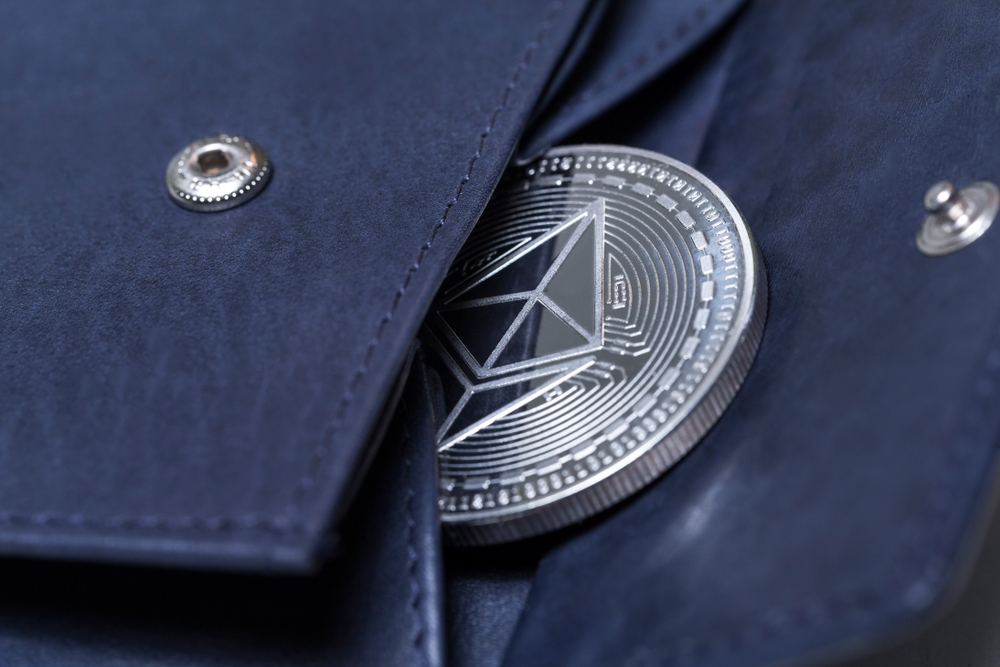Exclusive: SpaceX Alum’s Crypto Exchange Will Sell Stock Through Security Token Offering

Source: Shutterstock
LXDX, the high-speed cryptocurrency exchange founded by a former SpaceX engineer, has announced that it will issue stock through a security token offering (STO).
Institutional Crypto Exchange to Issue Stock on the Blockchain
CCN.com can exclusively report that LXDX, which was co-founded by former SpaceX engineer Joshua Greenwald, will become one of the first companies to issue stock through a security token offering, allowing investors to purchase cryptocurrency tokens that represent ownership in the exchange.
Security token offerings are essentially the suit-and-tie version of the initial coin offering (ICO), through which blockchain startups have collectively raised billions of dollars in startup capital while also entering sometimes-murky regulatory waters.
Most ICOs have purportedly issued “utility tokens,” which are functionally akin to service coupons or prepaid gift cards. Nevertheless, many regulatory agencies including the US Securities and Exchange Commission (SEC) have said that many so-called utility token ICOs are actually investment contracts since contributors generally purchase them on speculation that their value will increase in the future, rendering them liable to securities issuance and trading guidelines.
Given that many ICO tokens could be classified as securities anyway, a growing number of companies have decided to comply with securities regulations fully — and embrace the wide range of possibilities that registering as a security provides.
In LXDX’s case, its tokens will represent direct ownership in the exchange, complete with dividend rights. LXDX will issue 5 million tokens that collectively represent a 10 percent ownership share in the exchange and will entitle token holders to 10 percent of the exchange’s quarterly adjusted gross revenue. Tokens will each be priced at 1 euro, so this financing round will be conducted at a valuation close to $57 million. LXDX co-founder and COO Will Roman said that this was the only STO funding round the firm would conduct in the “foreseeable future.”
‘Million Token Future’

Speaking exclusively to CCN.com, Roman said that, bolstered by the advent of cryptocurrency technology, the world is on the cusp of a “million token future.”
“You will wake up one day, on a day not so different and not so far from this one, and there will be tens of millions tokens for trade. You’ll login to your IB, your TD Ameritrade account and instead of 4,000 or so equities to select from, you’ll be in a gateway to direct investment in a truly inconceivable number of opportunities,” he said. “Of course, there will be small businesses, there’s already 5 million of those in the US alone. But, there will also be tech startups, bonds, art collections, real estate projects, usage rights, royalties, and, yes, still funds that aggregate and index all of this coming chaos.”
“As blockchain technology proliferates, we expect to see increased tokenization of tangible assets like real estate, commodities, and even art. The million token future is just around the corner,” added CEO Joshua Greenwald in a press release. “We are excited to provide our community a chance to experience the benefits of a true security token.”
The LXDX STO is being made available to the general public under Malta’s crypto-friendly regulatory framework, though investors will have to comply with their local regulations. This means that US investors, for example, must secure accreditation to purchase LXDX security tokens.
Due to regulatory restrictions governing securities trading, the token will not be freely-tradable. The firm hopes to initially facilitate trading between investors who contributed to the STO, deploy a smart contract to manage trading “in a Bancor-like manner,” and ultimately list the token on secondary markets in six months.
LXDX: ‘We Don’t Crash’
The exchange, which will begin signing up customers in mid-November ahead of a December launch, aims to compete for the attention of the increasing number of institutional investors who are diversifying into the still-nascent cryptocurrency space.
The platform will offer a wide range of cryptocurrency derivatives, including some that Roman said “are not available anywhere else.” Significantly, the exchange won’t feature automatic liquidations or “socialized losses,” whereby a platform forcibly recoups profits from winning traders to cover losses that are too large for it to cover. This, as CCN.com reported, occurred at major exchange OKEx in August when a trader lost an “enormous” gamble in the exchange’s bitcoin futures market.
“We don’t like auto-deleveraging and we don’t like socialized losses,” Roman said. “We’re going about that differently than others in the crypto space; we don’t do auto liquidations.”
He further claimed that LXDX would operate with “radical transparency” to avoid accusations of market manipulation, wash trading, and other ethically-dubious practices that some analysts believe are pervasive within the cryptocurrency exchange market.
“With respect to ethos, we operate under radical transparency and operate according to all applicable regulations. We don’t secretly trade on our platform or sell your order flows to high frequency shops. We take a ‘seriously, don’t even try it’ attitude with respect to wash trading, pumps, and other market abuses.”
Platform development has been led by CTO Steven Thomas, a former US Navy cryptologic technician who most recently ran the performance and experimental technology teams at Tower Research Capital.
“Between our software, hardware custody solutions, and real-time trade surveillance, we are setting the standard for security and trust in the industry,” Thomas said in the announcement. “We’ve structured the LXDX system to enable ultra-secure information compartmentalization.”
Roman told CCN.com that the platform would offer a basic feature that has nevertheless proven to be elusive for cryptocurrency traders: “we don’t crash” during periods of peak volatility, he said, adding that the exchange can handle “massive amounts of orders and assets” with “very low latencies.”
“On the tech side, we do everything on our, custom-tuned hardware in our own data centers. Coded from scratch in C++, best possible NIC cards and servers you can buy,” he said. “We push orders through our entire network in single digit microseconds.”
Regarding security, he said that “where possible,” every LXDX wallet is secured by multi-signature technology, geographic distribution of private keys, layers of redundancy to prevent unauthorized withdrawals. LXDX’s core systems are housed in a company-run data center, not the cloud, and he said that the firm would “run our own clusters to protect against double spends and eclipse attacks.”
Exchanges Compete for Institutional Attention
In August, LXDX announced that it had received funding from a group of investors including Dymon Asia Venture Capital Fund and Arianna Simpson of Autonomous Partners. Nevertheless, Roman said that the competitive nature of the space necessitated a second round of financing to ensure that LXDX is well-positioned to become a market leader.
That competition is indeed stiff, and increasingly so. ErisX, launched in 2010 as a traditional futures market, recently rebranded as a cryptocurrency exchange with backing from TD Ameritrade and Virtu Financial. Bakkt, the crypto subsidiary of Intercontinental Exchange (ICE), is just weeks away from launching its first bitcoin trading product. Goldman Sachs is preparing to roll out its first crypto derivative, and Fidelity has spun-off a cryptoasset subsidiary — though at present it is focused on custody, not trading.
“The space in which we operate is competitive, and given all the moving pieces, both technically and regulatory, expensive. We are not looking to be another exchange to trade crypto assets; we’re here to win,” Roman said in an emailed statement. “We will be the crypto exchange on which to trade and to do so requires the appropriate capitalization.”
Images from Shutterstock
